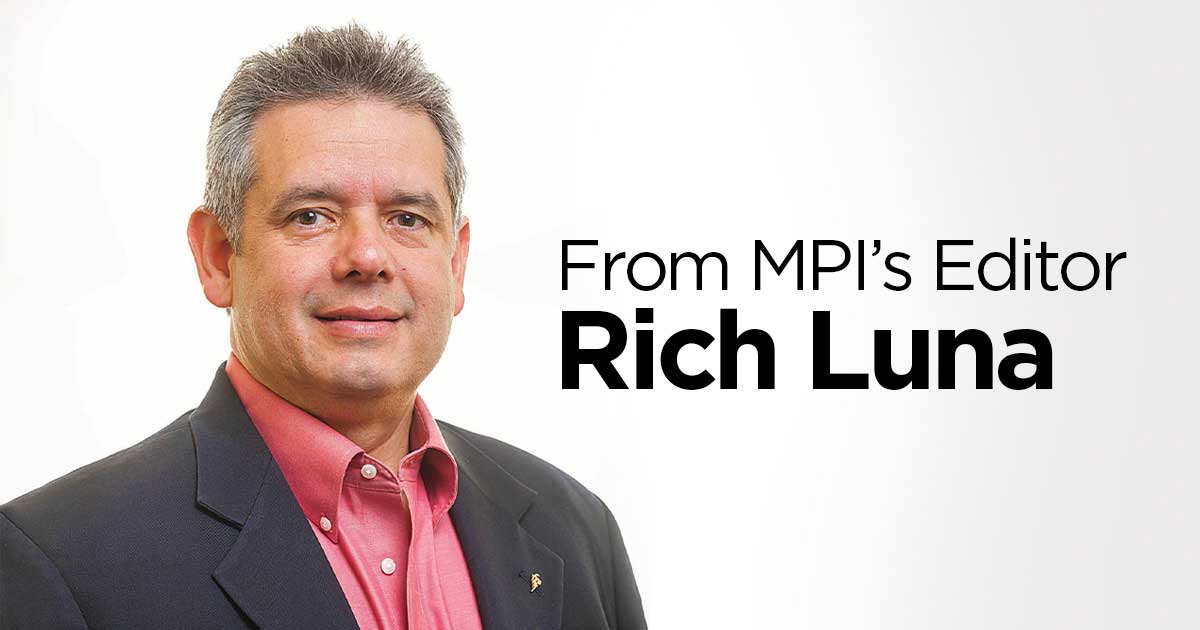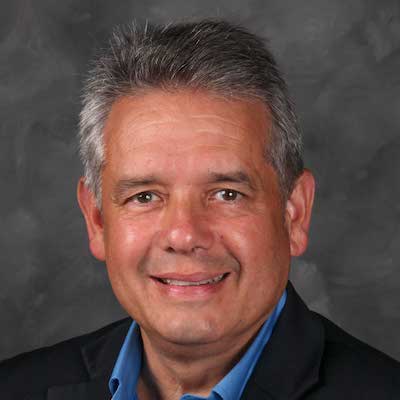Black Lives Matter.
It’s more than just a powerful phrase that of late has evoked passion, anger, protests, determination, alliances—forced or authentic—frustration and confusion. A phrase that inexplicably continues to both unite while also dividing and making us question our commitment to justice and fairness for the Black community.
Simply put, Black lives must matter. Black Lives Matter to me. They matter to my organization, MPI. Black Lives Matter to our meeting and event industry.
There is no place for anyone who believes otherwise.
Yet, why is it that here we are, in 2020, and still witnessing the horrors of violence, the lack of representation, the uncomfortable dialogue and a sense that for all the progress we have made, we have so far to go?
“[The] demand to end racial injustice has been ongoing since the framing of the United States of America. The difference now is the emergence of a new generation of thinkers and people willing to stand in solidarity.”
The answer is complex. What is certain, however, is that now is the time to make Black lives truly matter, to fully embrace diversity and inclusion in every level of our business.
We need only listen to the voices within our own community of meeting professionals, many of whom have labored much of their lives for this just cause. It can be heard in the voices of Elliott L. Ferguson, president and CEO of Destination DC; Jason Dunn Sr., chair of the National Coalition of Black Meeting Professionals; and Zoe Moore, co-chair of MPI’s Diversity & Inclusion Committee, who shared their personal stories in our podcast “Ask Why: Confronting Injustice in the Black Community.”
Consider the words from 1951 in Langston Hughes’ poem Harlem, which Moore cited:
What happens to a dream deferred?
Does it dry up
like a raisin in the sun?
Or fester like a sore—
And then run?
Does it stink like rotten meat?
Or crust and sugar over—
like a syrupy sweet?
Maybe it just sags
like a heavy load.
Or does it explode?
“The answer is yes,” she says. “This current explosion and demand to end racial injustice has been ongoing since the framing of the United States of America. Often deferred by violence, denial and legislation, the difference now versus 10 years ago is the emergence of a new generation of thinkers and people willing to stand in solidarity.”
Tanida Mullen, co-chair of the MPI Diversity & Inclusion Committee, says voices now are “amplified at a level that we haven’t seen before.”
“No longer are these stories on inequality and mistreatment circled around in our community,” she says. “Now you have people using their platforms to speak their truth and really uncover what the Black community has to deal with on a daily basis. You can see it in video and storytelling, and you can have live conversations at a moment’s notice where you have the world as your audience at the click of a button. Even with technology and access to the world, there is so much work that still has to be done before we see change. Telling our stories is just the beginning.”
MPI Podcast: Ask Why: Confronting Injustice in the Black Community
If we are truly committed to change, we must start by taking a look at ourselves. As an organization, MPI has much to be proud of. More than 20 years ago, the organization established its Principles of Professionalism, which speak to integrity, professional business practices and respecting diversity. Most recently, MPI has been at the forefront of advocating for women in leadership, support of LGBTQ rights and eradicating human trafficking. Our members and chapters have long advocated for diversity and inclusion; the work of the MPI Potomac Chapter, which earned a RISE Award for Industry Advocacy, is evidence.
But that self-reflection, as members have noted, does not find the Black community represented on the organization’s senior leadership team, and only minimally on the International Board of Directors (IBOD) and MPI Foundation Global Board of Trustees. While we recognize the very deserving 2020 RISE Awards recipients this month, a Black member has never received an individual RISE Award since its inception in 2009. A Black person has never been honored with the Chair’s Award.
So, do we have work to do? You bet, and no one is advocating more fiercely for change than Paul Van Deventer, president and CEO of MPI. I don’t say this because he is my boss; I say this because I believe he cares, not simply because he has heard the voices of his members, but because he believes it is the right thing to do.
“I’ve been part of MPI for almost eight years now and one of the things that really attracted me was the strength of this community, a community that has been built around some very strong core values and principles,” he says. “Focusing on diversity and inclusion is not new to MPI or to this community. I had ingrained in me from the early days of my career that diversity of thought, diversity of culture, diversity of race is smart personally, it’s smart professionally and, frankly, it’s a lot more enriching. Whether it’s in our staff or our volunteer leaders across the organization, diversity benefits all of us.”
“People [are] using their platforms to speak their truth and really uncover what the Black community has to deal with on a daily basis.”
How we get there is the challenge, and the accountability that goes with that must be faced by Van Deventer, by MPI, by our industry and by every one of us. MPI’s Diversity & Inclusion Committee is tasked with providing guidance and recommendations, including their work in helping develop mpi.org/equality.
“The challenge is to make sure every-one is on the same page as to what the goals are, from the IBOD level to the Global committee level to the chapter level,” Mullen says. “There needs to be consensus before we can truly have change. Usually if everyone is clear on the destination, it opens up the possibility for thinking outside the box on ways to get there. The IBOD can set the tone by deciding on measurable goals internally and sharing those goals as a way to show leaders at the chapter level how they can set their own.”
Other members weighed in as well, when asked about measurable goals.
“Measurable goals are achieved like any other aspect of a business strategy with commitment, time, resources and financial investment,” Moore says.
“The measurable goals may look very different for each organization or chapter,” says Jon Trask (MPI Orange County Chapter). “Another challenge is simply being vigilant and trying to constantly examine and manage being diverse at every opportunity.”
Resources for Equality and Justice: Furthering the Advancement of All Peoples
“I personally believe that the main challenge to identifying measurable goals is having the desire to set, pursue and re-evaluate goals for the long term,” says Amani Roberts (MPI Southern California Chapter). “If the desire is genuine, the goals can be identified and measured. That is the main challenge.”
“Establishing goals is the hard part,” says Anthony Molino (MPI Potomac Chapter). “You want to make sure that you aren’t just focusing on one subgroup but making sure your plans involve the entirety of the membership.”
“Not having the right resources at hand can make it hard to identity measurable goals,” says Pawntra Shadab, president of the MPI Orange County Chapter. “If we can challenge our curiosities and stay educated with the different ways to approach the topic, we are well on our way. There’s so much that can be done. Start small and work your way up.”
Clearly this is the foundation for meaningful dialogue. But the work of our Diversity & Inclusion Committee and a handful of members alone should not serve as the sole impetus of change. We all must be held accountable from this day forward, measured by authentic actions of respect and inclusiveness. I commit to you that I will do more. We all can. We all must.
If not now, when?
Rich Luna
Editor in Chief
rluna@mpiweb.org



